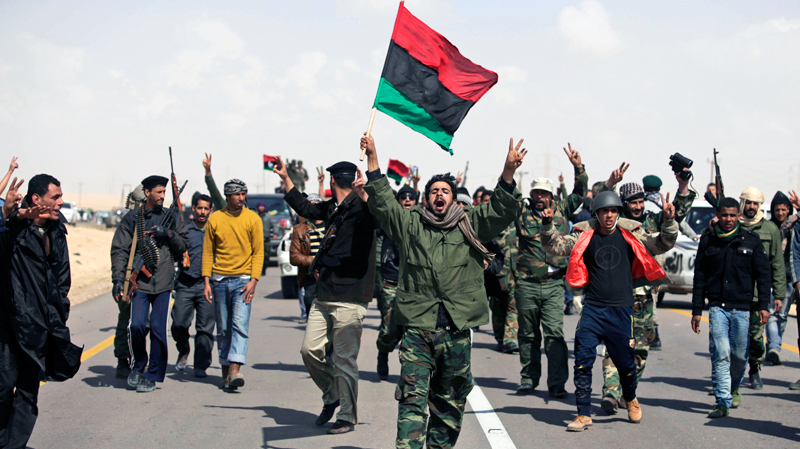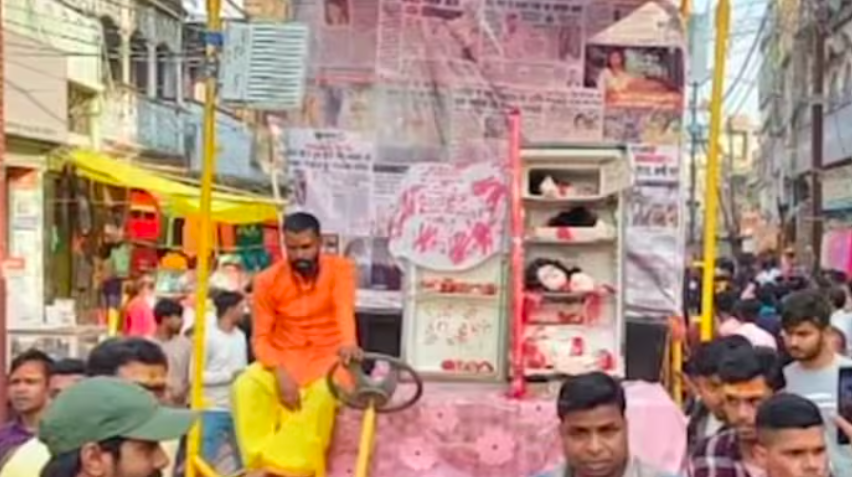TRIPOLI, April 2 (Xinhua) — Libya’s rebel forces on Saturday re-controlled the eastern areas of the eastern oil town of Brega, Qatari broadcaster Al-Jazeera reported.
Meanwhile, forces loyal to embattled Libyan leader Muammar Gaddafi withdrew from the outskirts of Brega, Al-Arabiya TV said, citing an eyewitness.
Brega is one of those cities which have been taken and retaken again and again by rebels and government forces after the Western coalition began air strikes against Gaddafi’s forces.
The town has a great significance as it, along with the eastern town of Ras Lanuf, makes up the lion’s share of Libya’s 1.5 million oil barrels of daily exports, which have been radically affected by the uprising since Feb. 15.
On Friday night, 13 rebels were killed in an air strike by the NATO-led coalition forces near Brega, the Libyan opposition said, describing the incident as a “mistake.”
Several rebels were also wounded when NATO planes dropped bombs on a rebel convoy near the eastern entrance of the oil port by mistake.
The opposition confirmed the deaths on Saturday in Benghazi, saying the unfortunate mistake would not affect their support to continue the air strikes of NATO which thwart government forces’ attack against the insurgents.
The rebels were killed on the battleground just 15 km east to Brega. The air raid came as the rebels shot up in the air to celebrate their victory, according to the opposition.
Despite the friendly fire accident, the rebel leadership called for continued air strikes against Gaddafi’s forces, who have repelled a rebel advance on the coastal road connecting their eastern stronghold with western Libya.
“This is a war and the lines are so fluid going back and forth, so it’s natural that mistakes will happen,” the opposition spokesman Mustafa Gheriani said.
The accident has not yet been confirmed by NATO. In Brussels, a NATO spokesman said the coalition forces were looking into the reports.
“The exact details are hard to verify because we have no reliable source on the ground,” NATO spokeswoman Oana Lungescu said. “Clearly, if someone fires at one of our aircraft they have the right to defend themselves.”
NATO, which took over from the United States the responsibility of overseeing military operations against Libya Thursday, is also investigating whether other airstrikes have killed civilians in western Libya.
Al-Jazeera also reported that U.S. and Egyptian special forces were training Libyan fighters in eastern Libya and high grade weapons, including rockets, were being supplied to rebels from abroad.
In Tripoli, a crowd of local residents gathered outside the United Nations office to show support for Libyan leader Muammar Gaddafi, carrying Gaddafi posters and shouting slogans against the NATO-led airstrikes.
Some furious protesters set fire to posters of U.S. President Barack Obama.
Meanwhile, the UN special envoy to Libya, Abdelilah al-Khatib, has concluded two separate meetings with representatives of the warring factions in Libya to avert the humanitarian crisis.
UN Secretary General Ban ki-Moon said in Nairobi that Libyan Prime Minister Al Baghdadi Ali al-Mahmoudi represented the government side, while the transitional national council which opposes the government was led by Mahmoud Jibril.
Ban said he had sent the special envoy to the talks held in Benghazi with rebels and in Tripoli with government officials to help avert the crisis which had seen millions of Libyans suffer increased attacks from both sides of the conflict.
“The talks with both parties aimed to end the humanitarian crisis that has forced thousands to seek refuge in neighboring states,” Ban told journalists in Nairobi during a press briefing.
“Since the beginning of the crisis 380,000 people have fled Libya and the UN is still searching for a lasting solution,” Ban said.
The UN also appealed to both sides to provide safe access for the Libyan migrants to return to their country.
Earlier on Friday, the Libyan government rejected the opposition’s cease-fire proposal, saying it is “crazy” and lacks sincerity.
What the rebels offered was not peace, said Libyan government spokesman Mussa Ibrahim. “They are asking us to withdraw from our own cities … If this is not crazy then I don’t know what it is.”
Mustafa Abdel Jalil, chairman of the opposition Interim Transitional National Council (ITNC), said they would agree to a cease-fire if Gaddafi withdrew his forces from all of Libya’s cities and respected the rights of Libyans to choose sides.









